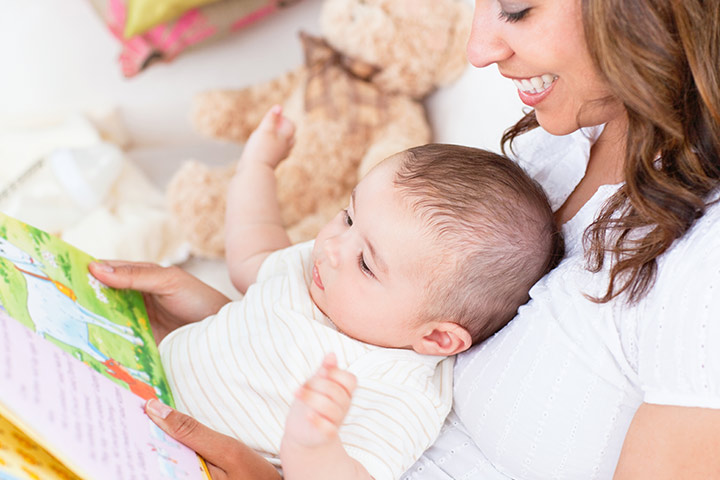Reading to your baby lets you SIT DOWN for a minute. Oh yes, and it’s also very good for them.
Functional MRI studies show reading does wonders for a child’s learning ability; language development and understanding. Read early and often – here’s your HerFamily guide to getting started:

- Snuggle up together when you read. Babies loves the cuddles while listening to your voice, and that feeling of security builds a love of reading from an early age. It doesn’t matter if you even manage to turn the pages (after all, your baby is unlikely to follow the plot and might even fancy the book for a snack!).
- High-contrast, bright illustrations are easier for a baby to see and will grab their attention. They love tactile books with different textures, flaps and mirrors, and cloth or cardboard books are good for a nibble. Keep them within easy reach so baby can hold them and look at them often.
- Babies enjoy a pattern of repetition; they like rhythm and cadence in tone. You will probably end up reading the same story quite a lot; repeating favourites helps strengthen language ability.
- Use ‘see and say’ to point out pictures and identify images; it cements the names of things. Doggie!
- Encourage noises – gurgles and coos mean your baby’s trying to mimic you; an important first step towards speech. It’s good to do different voices for characters, so moo and woof away.
- Pay attention to how baby reacts – if they’re not responding (distracted; fussy; trying to poke your eye out) to what you’re reading, try another book, or come back to it after a while.
- Make daily reading part of your routine. Babies are soothed by routine and it teaches them to predict what happens next – this ability is important as they grow and start to read independently.
- Join the library; there are usually other small kids there, as well as a regular ‘story time’ to get involved with. See what books attract the baby’s attention so you can borrow them and enjoy them at home.

Early reading from 0-9 months really does pay off. Studies show babies with regular reading have a 40 percent increase in receptive vocabulary (words they understand) by 18 months.
Being a great reader will give your kid a head start with school and a love of books will give them access to a whole world of unlimited possibilities.



















































